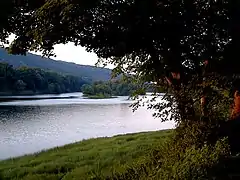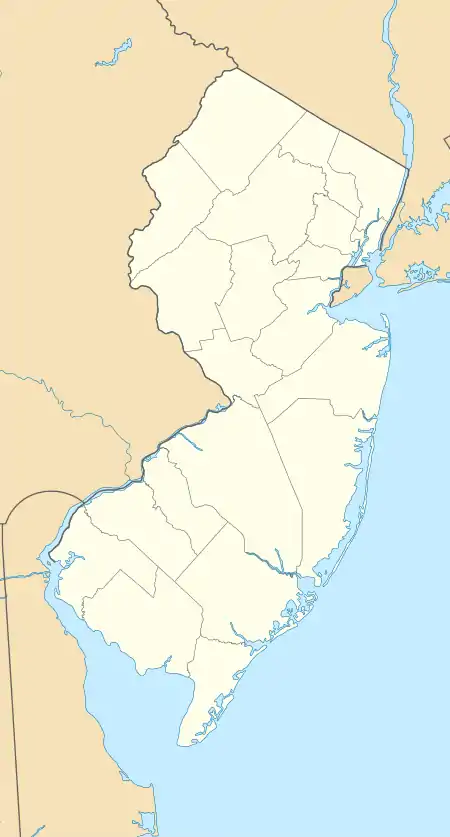Worthington State Forest
Worthington State Forest is a state forest located within the Delaware Water Gap National Recreation Area, just above the water gap, in Warren County, New Jersey. It covers an area of 6,660 acres (27.0 km2) and stretches for more than 7 miles (11 km) along the Kittatinny Ridge near Columbia. The park offers hiking, camping (including a hike-in, primitive area) and canoeing and kayaking on the Delaware. There are some twenty miles of hiking trails within the park, including seven miles of the Appalachian Trail, which passes through the park. The park is operated and maintained by the New Jersey Division of Parks and Forestry.
| Worthington State Forest | |
|---|---|
 View of Worthington State Forest from a campsite | |
 Worthington State Forest Location in New Jersey  Worthington State Forest Location in United States | |
| Location | Warren County |
| Coordinates | 41°0′0.00″N 75°4′12.00″W[1] |
| Area | 6,660-acre (27.0 km2) |
| Opened | 1954 |
| Operated by | New Jersey Division of Parks and Forestry |
| Website | Official website |
The forest is named after Charles Campbell Worthington, who purchased 8,000 acres (32 km2) of land of both sides of the Delaware River in 1903 as a hunting reserve. He built Buckwood Lodge, a small mansion, on the side of Kittatinny Ridge, between the river and Sunfish Pond, a small lake higher up the ridge covering 258 acres (1.04 km2). Worthington gave Sunfish Pond the name of Buckwood Lake, and used it as a water supply for his lodge. Worthington hunted deer in what is now the State Forest.[2]
The forest includes the 1,085 acres (4.39 km2) Dunnfield Creek Natural Area; the creek is designated a Wild Trout Stream. The 258 acres (1.04 km2) Sunfish Pond Natural Area consists of a glacial lake and the surrounding chestnut oak forest, and can be reached by a steep and rocky climb along the AT. Mount Tammany, at 1,527 feet (465 m), offers view of the Delaware Water Gap.
The Old Mine Road, one of the earliest roads in the area, runs along the Delaware; it was used for transporting copper and slate from nearby mines and quarries, and is believed to have originally been a Native American trail that saw use by fur traders and Dutch settlers.
References
- Official website

- Moldenke, H. N. (2013). "Sunfish Pond". Retrieved 2013-10-27.